- Hindus express hope for educational reform under AA administration
- Arakanese zat pwe performers struggle to survive as conflict halts traditional shows
- India-Arakan trade routes fully reopen after two-month closure
- When Prisoners Are Bombed, the War Has No Rules Left
- Two civilians killed, two injured in junta airstrike on Ramree village
Japanese peace broker makes third visit to Arakan State
Yohei Sasakawa, the Japanese special envoy for national reconciliation in Myanmar, visited camps for internally displaced people (IDP) in Arakan State over the weekend, his third visit to the country’s westernmost territory since assuming the role of peace mediator.
04 Feb 2023
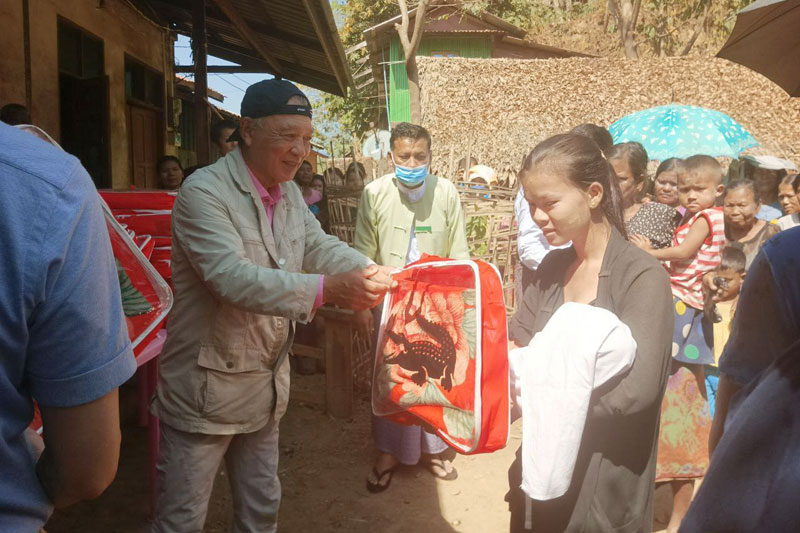
DMG Newsroom
4 February 2023, Sittwe
Yohei Sasakawa, the Japanese special envoy for national reconciliation in Myanmar, visited camps for internally displaced people (IDP) in Arakan State over the weekend, his third visit to the country’s westernmost territory since assuming the role of peace mediator.
He visited the Teinnyo IDP camp in Mrauk-U Township on Saturday morning, and presented jackets to IDPs. Sasakawa was accompanied by the Mrauk-U district and township administrators and other officials, according to the manager of the Teinnyo IDP camp, U Soe Naing.
“He gave away a jacket for each IDP. He did not talk about the return of IDPs to their villages. I heard he would visit two other places in Mrauk-U,” U Soe Naing said.
The Myanmar military and the Arakan Army (AA) have observed an informal ceasefire since late November, after some four months of often-intense fighting. The AA has credited the Japanese envoy with mediating the latest peace talks.
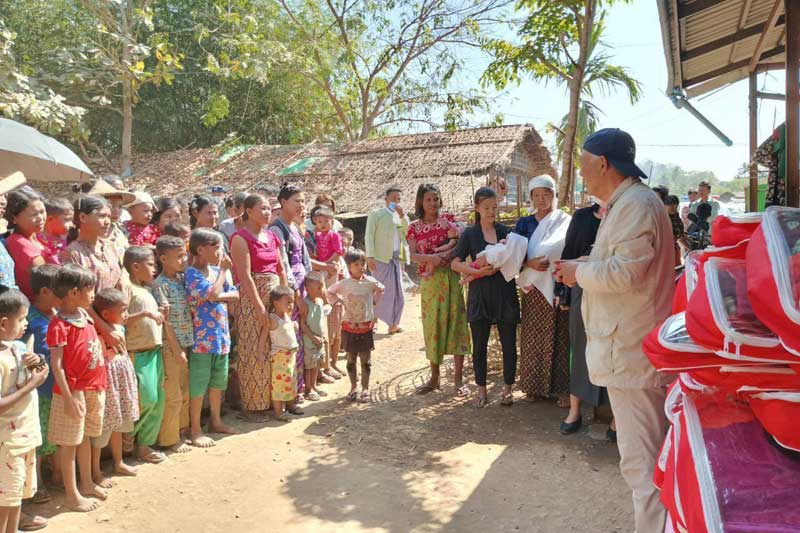
Sasakawa also visited Myanmar in late 2020, when he urged the now-ousted civilian government to hold elections in Arakan State townships where general election voting in November of that year had been cancelled due to fighting between Myanmar military and the AA. The special envoy was also credited with brokering peace between the two armies then.
Sasakwa visited IDP camps in Arakan State in November 2021 as well.
Reports indicated that his third visit to the state would conclude on Sunday, when he was scheduled to return to Yangon via Sittwe.
The trip to Arakan State comes days after the two-year anniversary of the coup in Myanmar, which saw the military unseat the democratically elected National League for Democracy (NLD) government on the grounds that the 2020 general election was marred by widespread voter fraud. That assertion has been widely disputed by international and domestic election monitors and observers.




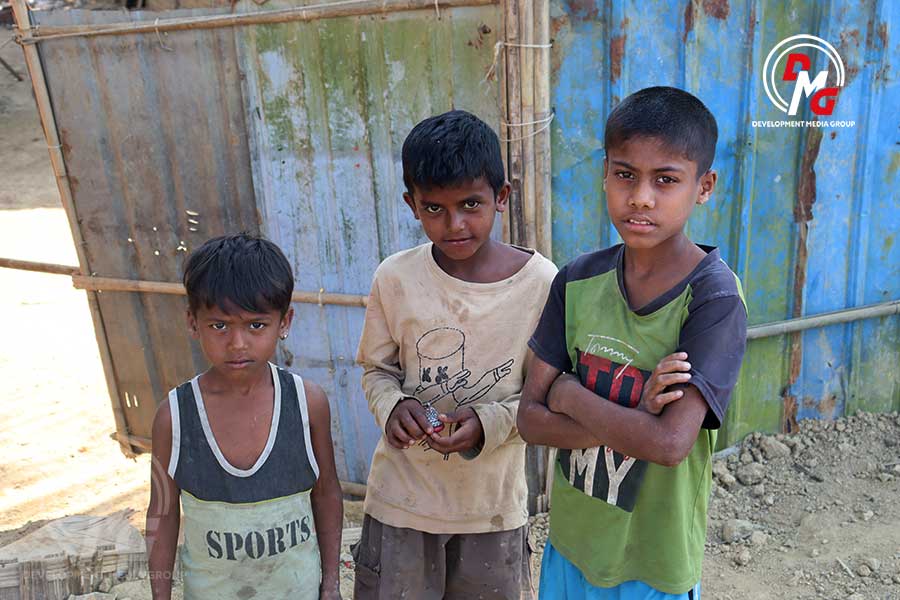
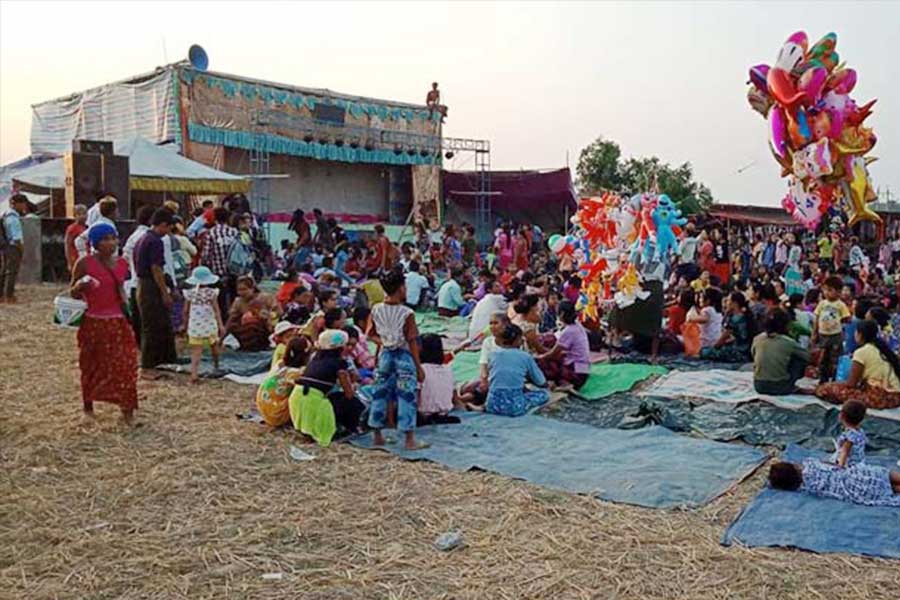
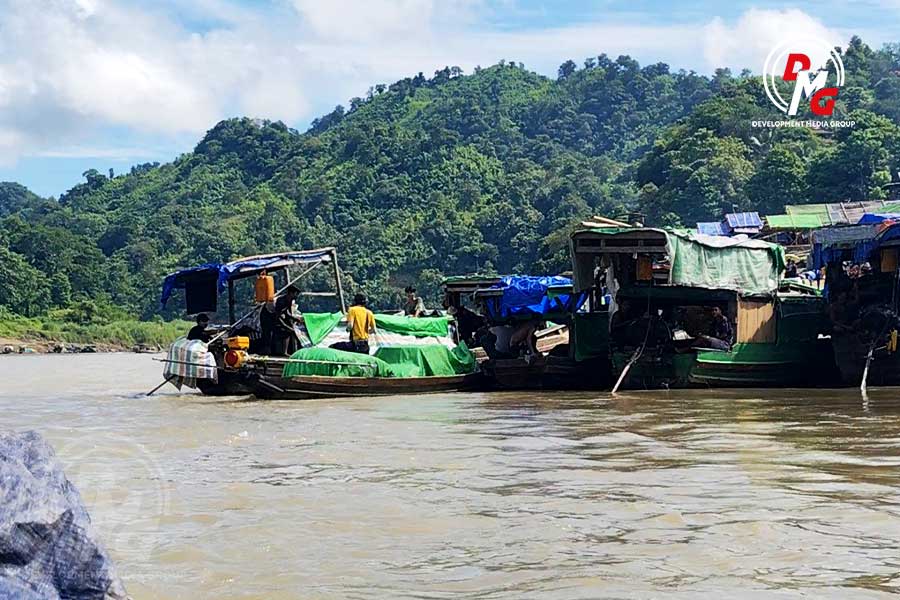
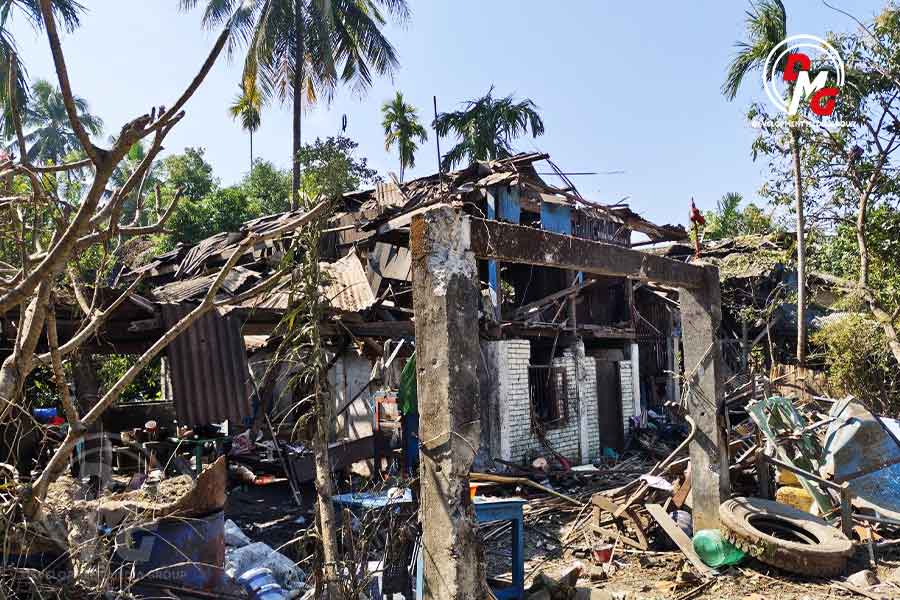
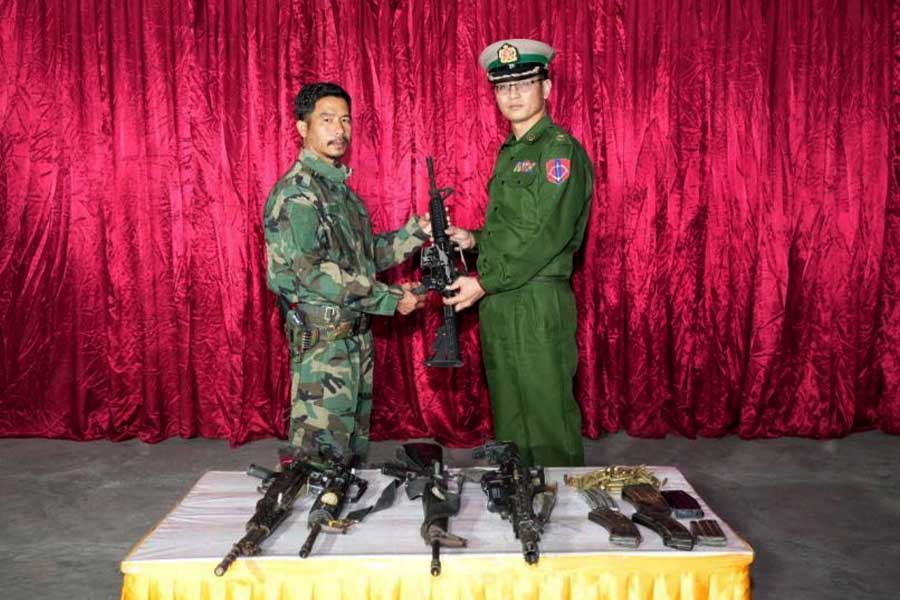








.jpg)